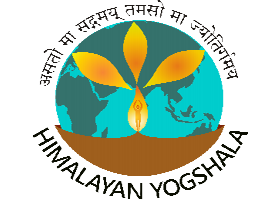200 HOURS TTC
200-hour residential yoga teacher training programs and yoga instructor courses in India registered with Yoga Alliance,India .The 200 hours teacher training course in yoga will provide you new insights in all areas of yogic practice and also present you an opportunity to become a registered yoga instructor - RYT 200. Yoga follows a tradition that will enrich your personal life and also show you how to help others to enrich their lives too so that a compassionate and humanitarian community can build up.
200-Hour Yoga Teacher Training India - Aims & Objective
The comprehensive course will familiarize you with the tenets of yoga philosophy and history, will help you intensify and master yoga Asanas in tandem with their effect on anatomy. You will observe daily Pranayama and meditation along with chanting so you understand their strengthening and balancing properties. Bring you an understanding of yogic discipline, diet and cleansing rituals and you will be taught how to go about becoming a good yoga teacher.
200-Hour Yoga Teacher Training India - Overview
» Internationally certified yoga teacher training in India registered with Yoga Alliance India.
» Yoga teacher training in Rishikesh, also known as yoga capital of the world.
» Yoga teacher training course specially designed for beginners, intermediate and advanced level yoga students.
» An intensive yoga teacher training course taught by yoga teachers who are firmly rooted in tradition yet contemporary in their vision & communication.
» Residential facility midst ashram surroundings yet not far from the city.
» Loving and caring support team.
» Opportunity to experience Indian culture and tradition.
Yoga Teacher Training Syllabus
Yoga Philosophy
Yoga – Introduction
Origin of yoga
Different paths of yoga -Karma, Bhakti and Jnana
Consciousness and awareness
Evolution of awareness
Evolution of elements (according Sankhya darshan)
Panch kosha (five covering or sheaths over consciousness)
• Annamaya kosha (physical sheath) – Gross body – Conscious state
• Panch-tatva (Five-elements), Sapt-dhatu (Seven-tissues)
• Pranamaya kosha (energy sheath) – Subtle body – Subconscious state
• Panch-prana (five vital airs)
• Karmendriya (five organ of action)
• Nadi (subtle energy channels), Tri-shakti (tried energy)
• Shat-Chakra (six centre of energy-transformation)
• Kundalini and Granthis
• Manomaya kosha (mental sheath) – Subtle body – Subconscious state
• Manas (mind), Buddhi (lower intellect), Chitta (memory), Ahamkar (ego)
• Jnanedriya (five senses)
• Jnanamaya kosha (intuitive sheath) – Subtle body – Subconscious state
• Buddhi (higher intellect)
• Ananadmaya kosha (bliss sheath) – Causal body – Unconscious state
• Turiya – Pure consciousness
- Four-sutra (preface of Patanjali’s Yog sutra)
- Panch-klesha (five causes of pain and miseries)
- Raja yoga and hatha yoga
- Yama, Niyama (social and personal rules and regulations)
- Asana (physical posture)
- Pranayama (breathing techniques)
- Pratyahara (withdrawal of the mind from the senses)
- Dharna (concentration), Dhayan (meditation), Samadhi (self-realization)
- Asana/Pranayama/Shatkarma/Bandha
Evaluation & Certification
» Assessments will be based on written as well as practical evaluation.
» Student conduct will be a part of the assessment criterion.
» Evaluation will be carried out only for those students who have a minimum of 90% attendance.
